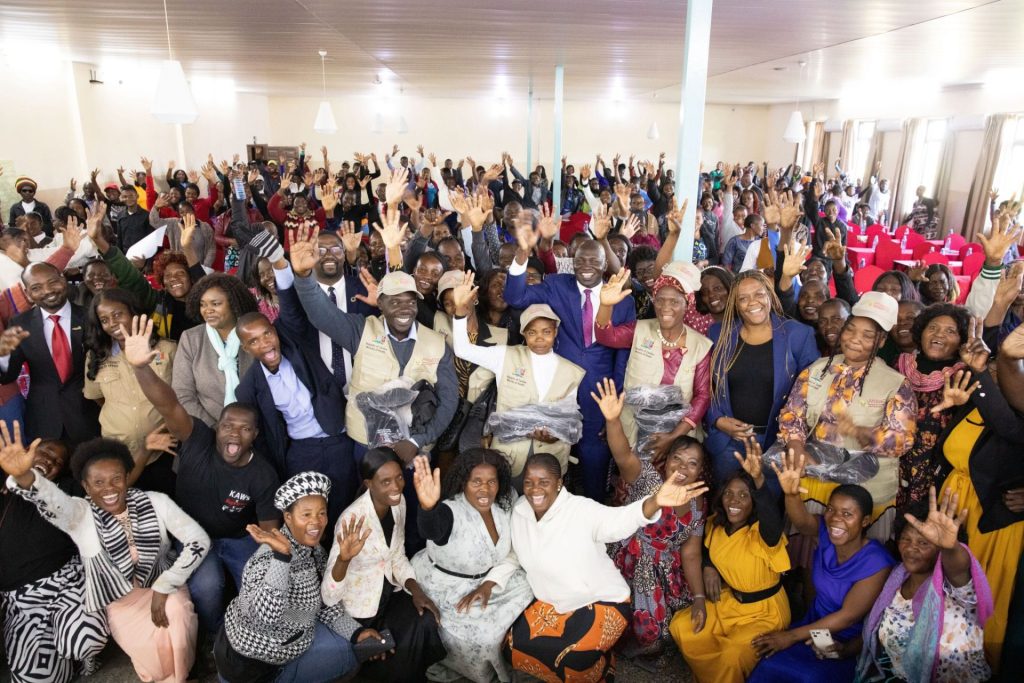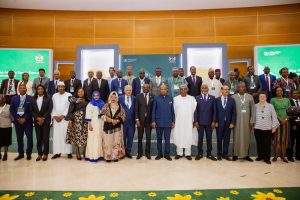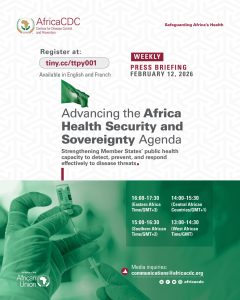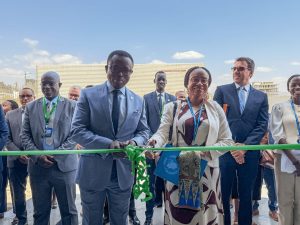Young people in Africa, from remote villages to bustling cities are stepping into community health roles. They are reshaping lives, economies, and the future of health care.
For decades, many communities in Africa’s remote areas have waited for the health system to reach them. Now, thanks to a new generation of trained and equipped community health workers, health is arriving at the doorstep with dignity, purpose, and a pathway out of poverty. UNICEF and Africa CDC shared these insights and more during a recent webinar on Economic opportunities for young people in health sector – from ideas to action.
The meeting explored how investing in primary health care can catalyse economic opportunities, strengthen communities, and support sustainable development.
It focused on health financing, job creation, and capacity building, particularly among low-income and underserved populations. The session highlighted successful models of collaboration between governments, partners, and the private sector. By investing in digital infrastructure, expanding inclusive finance, and building a strong health workforce led by young people, this initiative aims to position health as both a fundamental right and a powerful driver of Africa’s economic future
“Young people are no longer just beneficiaries. They build our health systems,” said Dr Landry Dongmo Tsague, Director of Primary Health Care at Africa CDC. The continental goal to recruit, train and deploy two million community health workers is crucial to safeguard Africa’s health.
Already, nearly one million community health workers have been trained and deployed across Africa, while 41 countries are developing national strategies to sustain them. These workers are earning incomes, feeding families, and serving as trusted voices in their communities.
“Through our 1MiO platform in Brazil, UNICEF has already generated over half a million learning, training, and job opportunities for vulnerable youth, proving that youth empowerment in health and care can scale fast and deliver real impact,” said Dr Faouzia Shafique associate director for health at UNICEF.
Investing in community health brings real returns. It reduces disease, boosts productivity, and unlocks economic opportunity, especially for women and youth. As Maud Jacquard of the Global Financing Facility explained, every dollar invested in combating malnutrition alone can return as much as 23 dollars through improved health outcomes and economic growth.
In Liberia, Dr Olasford Wiah, Director of Community Health, shared how one patient’s preventable death changed the course of his career. That moment revealed the power of a well-equipped community health system. “When you empower individuals and bring services closer to home, you are saving lives and opening doors,” he said.
In Sierra Leone, Deputy Chief Medical Officer Dr Satti Kenneh described how thousands of community health workers helped reduce disease transmission from Ebola to COVID-19. They were the eyes and ears on the ground, acting fast, building trust, and strengthening the first line of defence. “Without them, we would not have made the progress we see today,” he said.
The private sector is also leaning in. Through the Equity Group Foundation, a network of Equity Afya health centers is expanding across East and Central Africa such as Kenya, DRC, and beyond. These centers are businesses designed to last, built on entrepreneurship, and run by health professionals who are trained to lead. “We aim to impact 100 million lives by 2030 by delivering quality, affordable care that creates jobs and builds resilience,” said Dr Joanne from Equity.
It’s a model that reimagines health as a driver of economic transformation, not just a line item on a government budget.
As Edward Zimbe from Living Goods explained, community health systems that are data-driven, digitally enabled, and performance-based are changing lives. “When we pay community health workers, support them with tools and training, and treat them as professionals, they deliver more and save more lives.”
The path ahead is not without challenges; sustainable financing, career progression, and systems that support and not exploit young workers remain top priorities. If these and more challenges are addressed, a village health worker is a skilled, respected member of the health system. One where a young woman in a rural district can both care for her community and build a future for her family.
These initiatives prove that Africa’s health workforce of the future is rooted in the community and powered by youth who make up over 60% of the African Continent.







